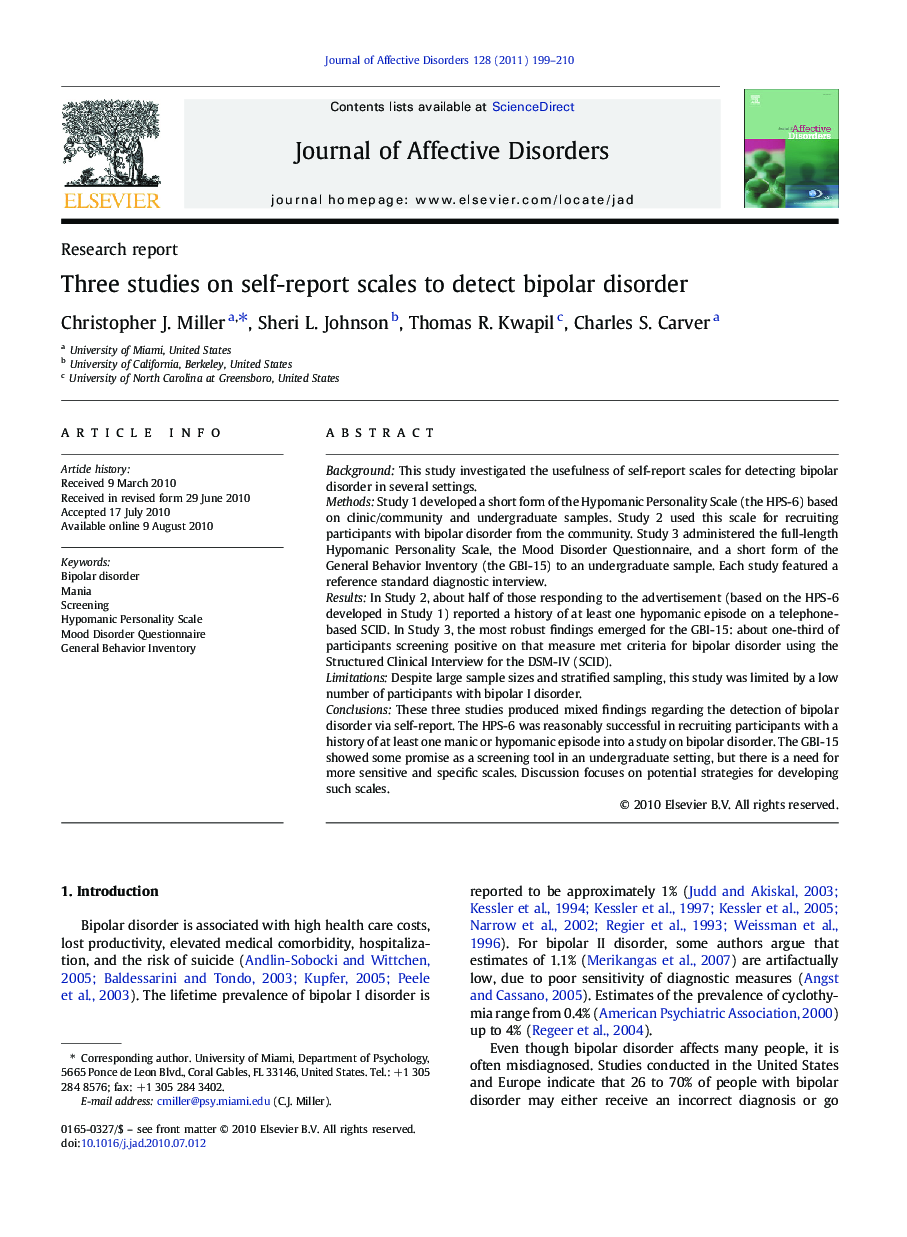| کد مقاله | کد نشریه | سال انتشار | مقاله انگلیسی | نسخه تمام متن |
|---|---|---|---|---|
| 4186587 | 1277599 | 2011 | 12 صفحه PDF | دانلود رایگان |

BackgroundThis study investigated the usefulness of self-report scales for detecting bipolar disorder in several settings.MethodsStudy 1 developed a short form of the Hypomanic Personality Scale (the HPS-6) based on clinic/community and undergraduate samples. Study 2 used this scale for recruiting participants with bipolar disorder from the community. Study 3 administered the full-length Hypomanic Personality Scale, the Mood Disorder Questionnaire, and a short form of the General Behavior Inventory (the GBI-15) to an undergraduate sample. Each study featured a reference standard diagnostic interview.ResultsIn Study 2, about half of those responding to the advertisement (based on the HPS-6 developed in Study 1) reported a history of at least one hypomanic episode on a telephone-based SCID. In Study 3, the most robust findings emerged for the GBI-15: about one-third of participants screening positive on that measure met criteria for bipolar disorder using the Structured Clinical Interview for the DSM-IV (SCID).LimitationsDespite large sample sizes and stratified sampling, this study was limited by a low number of participants with bipolar I disorder.ConclusionsThese three studies produced mixed findings regarding the detection of bipolar disorder via self-report. The HPS-6 was reasonably successful in recruiting participants with a history of at least one manic or hypomanic episode into a study on bipolar disorder. The GBI-15 showed some promise as a screening tool in an undergraduate setting, but there is a need for more sensitive and specific scales. Discussion focuses on potential strategies for developing such scales.
Journal: Journal of Affective Disorders - Volume 128, Issue 3, February 2011, Pages 199–210